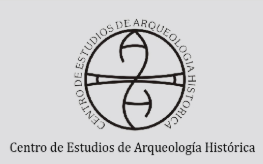Guerrilla del Araguaia:
Arqueología , historia y derechos humanos
DOI:
https://doi.org/10.35305/tpahl.vi5.73Keywords:
archeology, history and human rightsAbstract
The paper presents some considerations on the possible contributions that archeol- ogy can offer the knowledge of one of the darkest episodes of the Brazilian civil- military dictatorship (1964 to 1985): the Araguaia’s guerrilla. Occurred in the northern region in the triple border between the states of Pará, Maranhão and To- cantins (the northern season of Goiás) and organized by the Communist Party of Brazil (PC do B) the guerrilla was the main form of struggle against dictatorship envisioned by this policy guild, the repressive context established from the coup that started the last Brazilian dictatorship period. In guerrilla warfare, almost all guerrillas were killed, many of which are included in the listings organized by enti- ties which meet the families who have killed and disappeared in those years, be- sides that reports of killings, torture and disappearances of peasants in the region.







